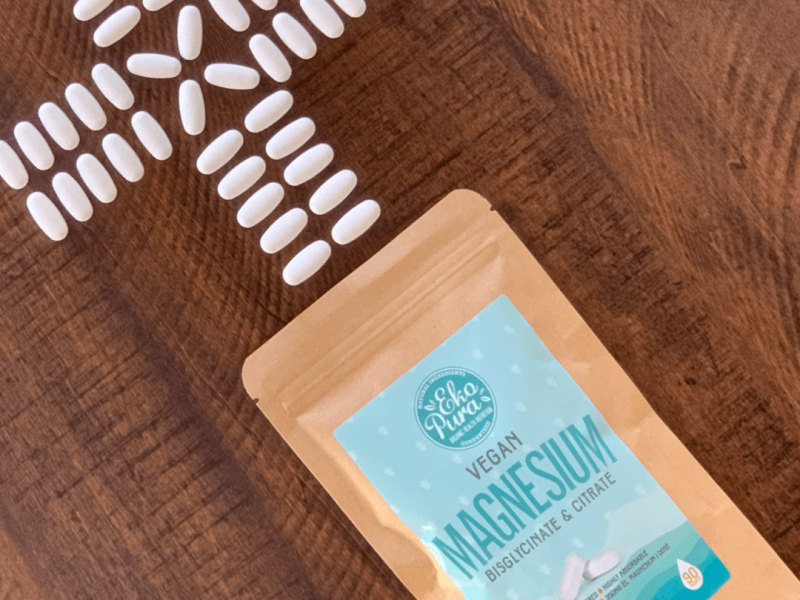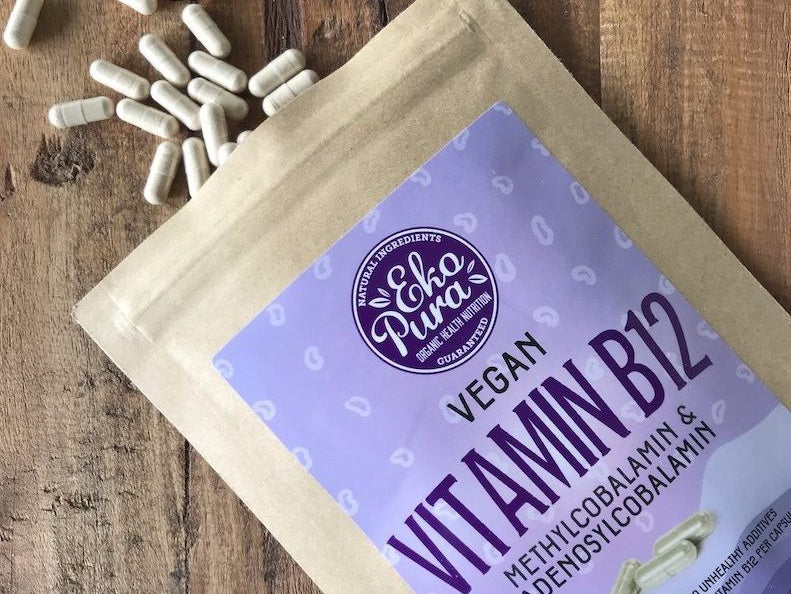Magnesium is a mineral your body needs to function properly. The mineral is involved in more than 300 processes in the body. Among other things, magnesium helps build muscles and bones and relaxes muscles and nerves. It is therefore one of the most important minerals for humans. Therefore, it is essential to get enough magnesium. Despite your commitment to a healthy diet, you may have a magnesium deficiency.
In this article, we look into this and give you some tips to make sure you get enough magnesium. Read along.
What Does Magnesium Do?
Every organ needs magnesium. In particular, the heart, kidneys and muscles use a lot of this mineral. Magnesium is therefore indispensable. Magnesium works closely with sodium, potassium and calcium, with which it should be kept in balance in our bodies. Magnesium is also called the "anti-stress mineral" because it helps relax muscles and nerves.
What exactly does magnesium contribute to?
- The relaxation of muscles, blood vessels & nerves.
- Biochemical processes in the body.
- Concentration and memory: magnesium enhances memory and the ability to concentrate.
- Reducing fatigue: because magnesium releases energy from food, you are less likely to be tired.
- Regulation of other minerals in the body such as calcium, zinc, potassium and vitamin D.
- Strong bones and teeth.
- Energy production of the body's cells.
- The building of proteins and new cells.
What foods are high in magnesium?
Magnesium is found in all kinds of (green) vegetables such as spinach, kale, broccoli, nuts such as almonds and walnuts, legumes such as chickpeas, all kinds of beans, brown rice, fish, raw cacao and, of course, the popular avocado!
How much magnesium do you need per day?
To get enough magnesium, it is important to eat a healthy diet. After all, your body absorbs magnesium from your diet. Yet it can happen that you do not get enough. For example with an irregular eating pattern or intense physical activity. A food supplement can then be a good addition.
The magnesium requirement is different for each gender. The Nutrition Center recommends a daily intake of 280 milligrams for women and 350 milligrams for men.
Symptoms of magnesium deficiency!
Magnesium deficiency is increasingly common. The mineral is found in many foods, however to an increasingly lesser extent in the Western world. If you exercise a lot, you also lose a lot of magnesium through perspiration. A magnesium deficiency can be recognized by the following symptoms.
- Anxiety
- Periods of hyperactivity
- Difficulty sleeping
- Difficulty sleeping for long periods
- Painful muscle cramps
- Contractions of the eye
- Fatigue
- Irritability
Do you need more magnesium as an athlete?
Yes. Athletes need up to 20 percent more magnesium than non-active people. This is because exercise involves sweating where magnesium is lost. Low magnesium levels can lead to deficiencies and symptoms such as muscle cramps. This can ultimately reduce physical performance. Therefore, especially during periods of extreme exertion, many (elite) athletes opt for magnesium supplements.
Which type of magnesium do you need?
There are different forms of magnesium but not all forms have good absorbability. We have therefore looked at the two best absorbable forms, magnesium bisglycinate and citrate.
Bisglycinate: Magnesium Bisglycinate is a superior organic form of magnesium. Because it is chelated, it will reach the intestines as an amino acid and be absorbed in its entirety by the intestinal mucosa. After this, magnesium separation will only take place resulting in excellent absorption by the body. Magnesium bisglycinate is also better tolerated by many people than other forms of magnesium, even at higher doses.
Citrate: Magnesium citrate is also an organic form of magnesium with very good absorbability and bioavailability. The magnesium is bound to a citrate salt and is therefore highly soluble. The good solubility ensures that the magnesium is better absorbed by the body compared to non-organic forms of magnesium such as magnesium oxide, for example.
Ekopura Vegan Magnesium
Ekopura vegan magnesium is therefore made from Magnesium Bisglycinate and Magnesium Citrate. The two best absorbable magnesium sources with high elemental magnesium content. 2 tablets per day ensure that daily magnesium needs are met. The tablets are made with no unhealthy additives and only plant-based excipients.
Want to know more? Read more on our website: Ekopura Vegan Magnesium


















